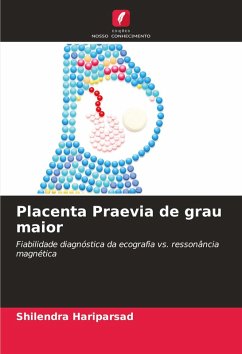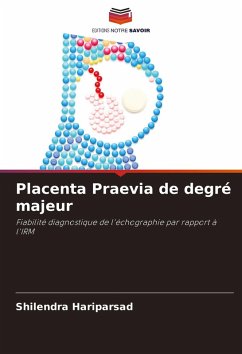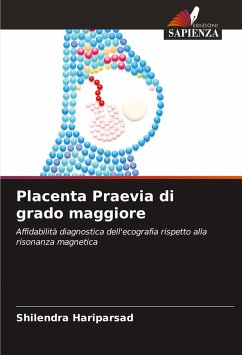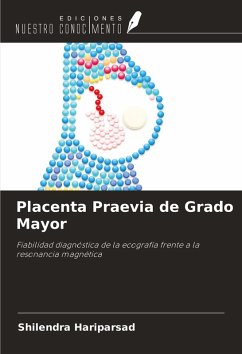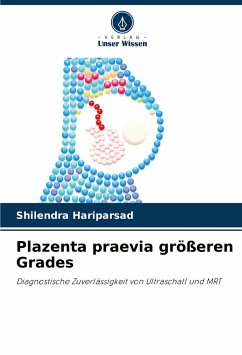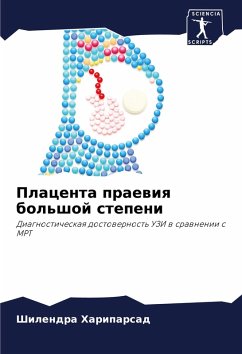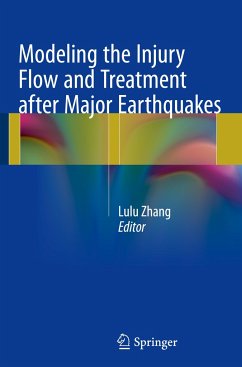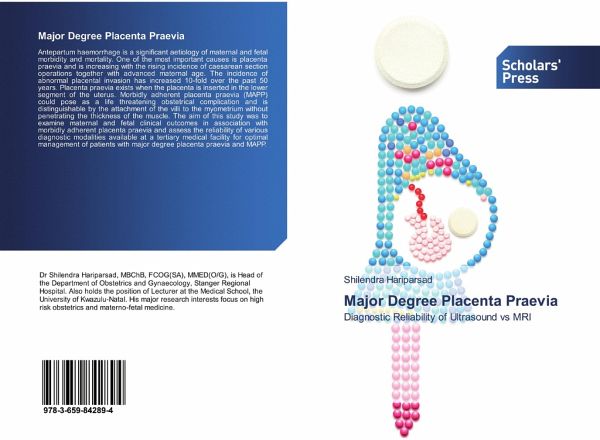
Major Degree Placenta Praevia
Diagnostic Reliability of Ultrasound vs MRI
Versandkostenfrei!
Versandfertig in 6-10 Tagen
30,99 €
inkl. MwSt.

PAYBACK Punkte
15 °P sammeln!
Antepartum haemorrhage is a significant aetiology of maternal and fetal morbidity and mortality. One of the most important causes is placenta praevia and is increasing with the rising incidence of caesarean section operations together with advanced maternal age. The incidence of abnormal placental invasion has increased 10-fold over the past 50 years. Placenta praevia exists when the placenta is inserted in the lower segment of the uterus. Morbidly adherent placenta praevia (MAPP) could pose as a life threatening obstetrical complication and is distinguishable by the attachment of the villi to...
Antepartum haemorrhage is a significant aetiology of maternal and fetal morbidity and mortality. One of the most important causes is placenta praevia and is increasing with the rising incidence of caesarean section operations together with advanced maternal age. The incidence of abnormal placental invasion has increased 10-fold over the past 50 years. Placenta praevia exists when the placenta is inserted in the lower segment of the uterus. Morbidly adherent placenta praevia (MAPP) could pose as a life threatening obstetrical complication and is distinguishable by the attachment of the villi to the myometrium without penetrating the thickness of the muscle. The aim of this study was to examine maternal and fetal clinical outcomes in association with morbidly adherent placenta praevia and assess the reliability of various diagnostic modalities available at a tertiary medical facility for optimal management of patients with major degree placenta praevia and MAPP.



